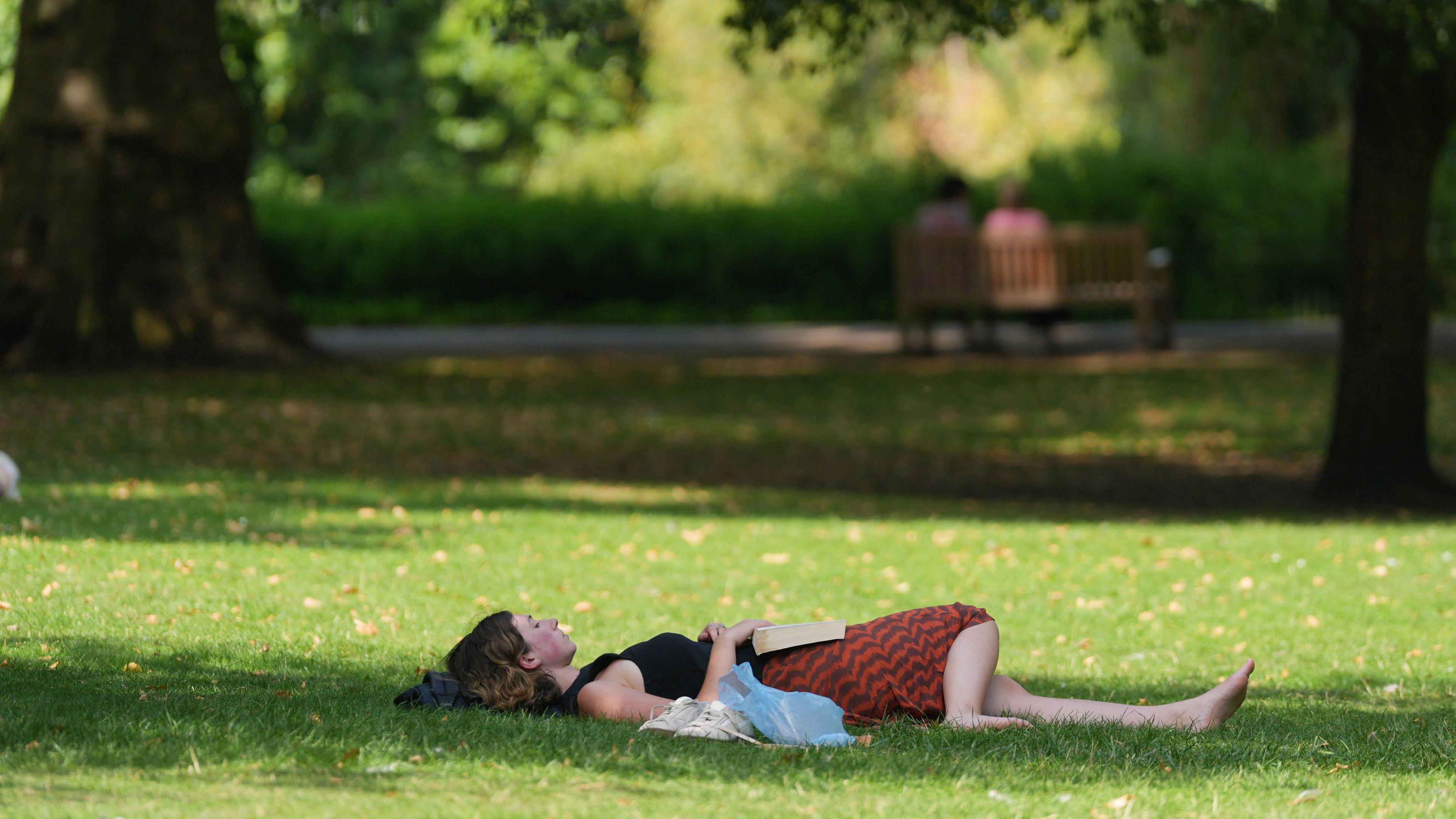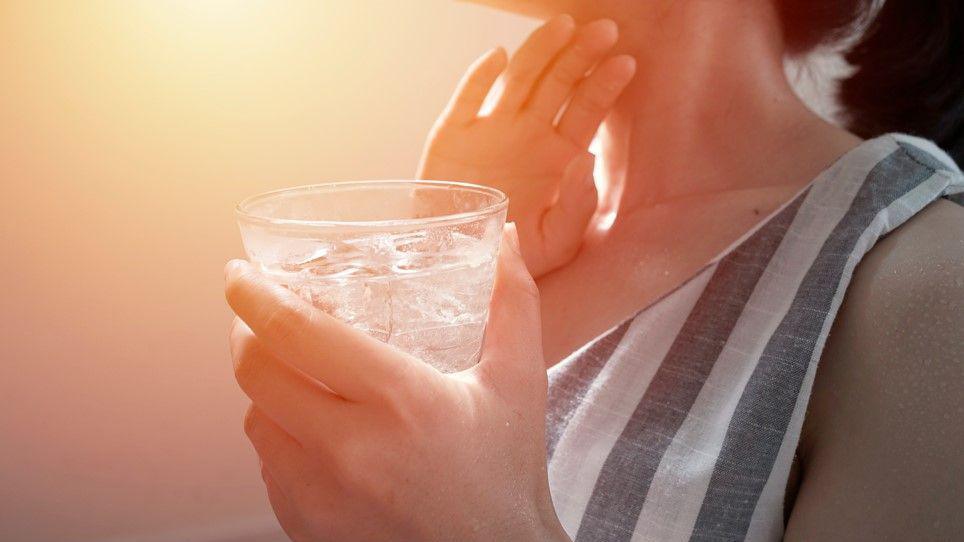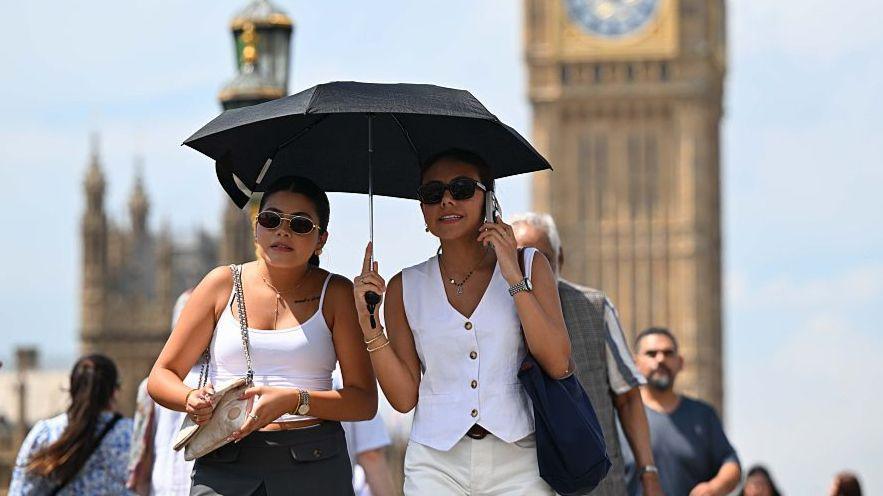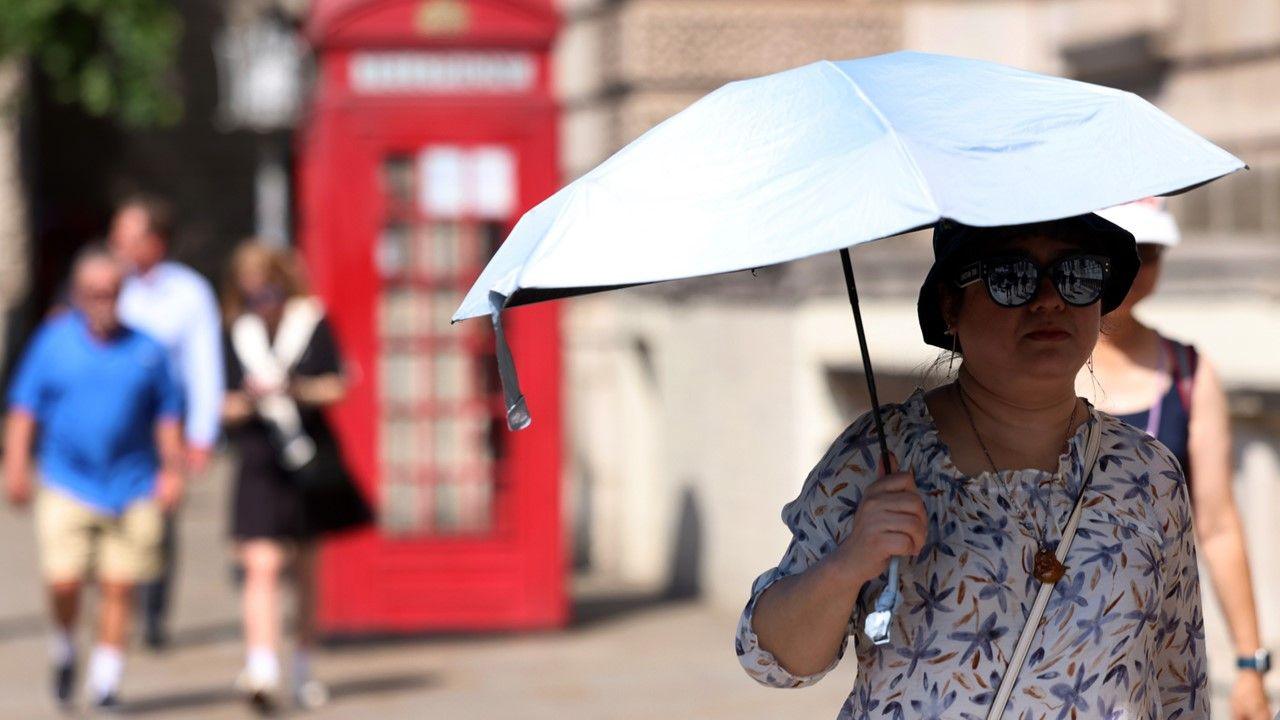GPs' warning as heat causes surge in A&E visits

Dr Abbas recommended wearing light coloured, loose clothing
- Published
Hospital emergency departments have reported a surge in people seeking urgent care during the August heatwave, according to West Yorkshire Health and Care Partnership.
With more hot weather forecast, health leaders across the region have urged people to take simple steps to stay safe in the heat.
Dr Sohail Abbas, deputy medical director for NHS West Yorkshire Integrated Care Board and a local GP, has warned that high temperatures can pose serious health risks. Older people, young children and those with existing health conditions are particularly at risk, he added.
Dr Abbas recommended drinking water and staying hydrated.
"If you are out and about, you can refill your bottle with free water in lots of places across our region. You can use the Refill Return app to find your nearest water station."
He has also recommended avoiding the sun between 11:00 and 15:00 GMT, when it is at its hottest.
"If you do need to go out, stick to the shade, use suncream, wear sunglasses and wear light-coloured, loose clothing," he said.
He also urged people to look out for vulnerable neighbours and relatives, and to never leave babies, children or animals in parked vehicles.
At home, he advised that people can keep indoor spaces cooler by closing the curtains in rooms that face the sun, opening windows when it's cooler outside and turning off electrical equipment and lights that get hot.

Heatstroke needs to be treated as an emergency, Dr Abbas said
"If you do feel unwell make sure you access the right care in the right place," said Dr Abbas. "If you're unsure what to do, contact NHS 111 online at 111.nhs.uk or by phone - they're open 24 hours a day, seven days a week."
Heat exhaustion symptoms include dizziness, tiredness, feeling or being sick, headache, excessive sweating and weakness. Sufferers do not usually need emergency medical help if they are cooled down within 30 minutes, Dr Abbas said.
To cool someone down, he advised moving them to a cool place, removing unnecessary clothing like a jacket or socks, getting them to drink a sports drink or cool water and cooling their skin by spraying or sponging them with cold water and fanning them.
Heatstroke needed to be treated as an emergency, he added. The more serious condition's signs include a person still feeling unwell after 30 minutes of rest in a cool place and drinking fluids; a high temperature; hot skin that is not sweaty and may look red; a fast heartbeat; fast breathing or shortness of breath; confusion and lack of co-ordination; a seizure, fit or loss of consciousness.
Listen to highlights from North Yorkshire on BBC Sounds, catch up with the latest episode of Look North.
Related topics
- Published10 July

- Published14 July

- Attribution
- Published19 July
